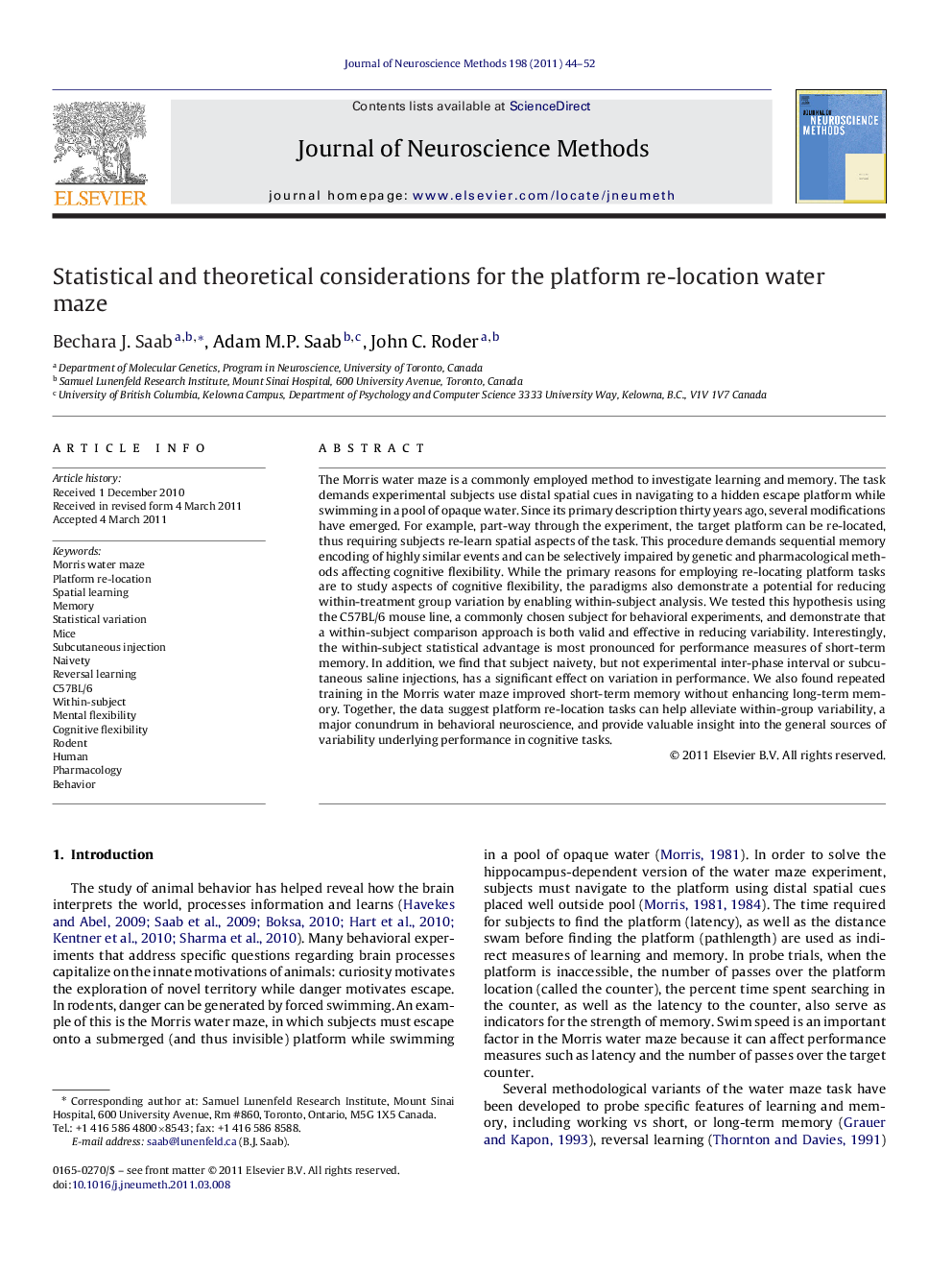| Article ID | Journal | Published Year | Pages | File Type |
|---|---|---|---|---|
| 4335475 | Journal of Neuroscience Methods | 2011 | 9 Pages |
The Morris water maze is a commonly employed method to investigate learning and memory. The task demands experimental subjects use distal spatial cues in navigating to a hidden escape platform while swimming in a pool of opaque water. Since its primary description thirty years ago, several modifications have emerged. For example, part-way through the experiment, the target platform can be re-located, thus requiring subjects re-learn spatial aspects of the task. This procedure demands sequential memory encoding of highly similar events and can be selectively impaired by genetic and pharmacological methods affecting cognitive flexibility. While the primary reasons for employing re-locating platform tasks are to study aspects of cognitive flexibility, the paradigms also demonstrate a potential for reducing within-treatment group variation by enabling within-subject analysis. We tested this hypothesis using the C57BL/6 mouse line, a commonly chosen subject for behavioral experiments, and demonstrate that a within-subject comparison approach is both valid and effective in reducing variability. Interestingly, the within-subject statistical advantage is most pronounced for performance measures of short-term memory. In addition, we find that subject naivety, but not experimental inter-phase interval or subcutaneous saline injections, has a significant effect on variation in performance. We also found repeated training in the Morris water maze improved short-term memory without enhancing long-term memory. Together, the data suggest platform re-location tasks can help alleviate within-group variability, a major conundrum in behavioral neuroscience, and provide valuable insight into the general sources of variability underlying performance in cognitive tasks.
Graphical abstractFigure optionsDownload full-size imageDownload as PowerPoint slideHighlights► We have statistically interrogated the platform re-location water maze paradigm. ► We establish the possibility for within-subject analysis the water maze. ► We show variation primarily results from individual differences in cognitive ability. ► We find repeated exposure selectively improved short-term learning and memory. ► We reason platform relocation protocols probe a type of memory important to human.
